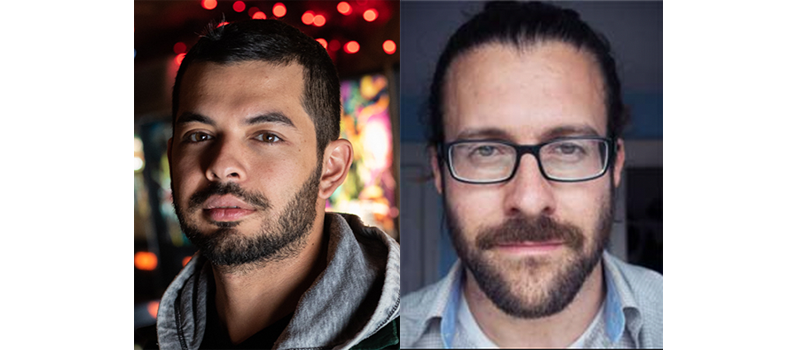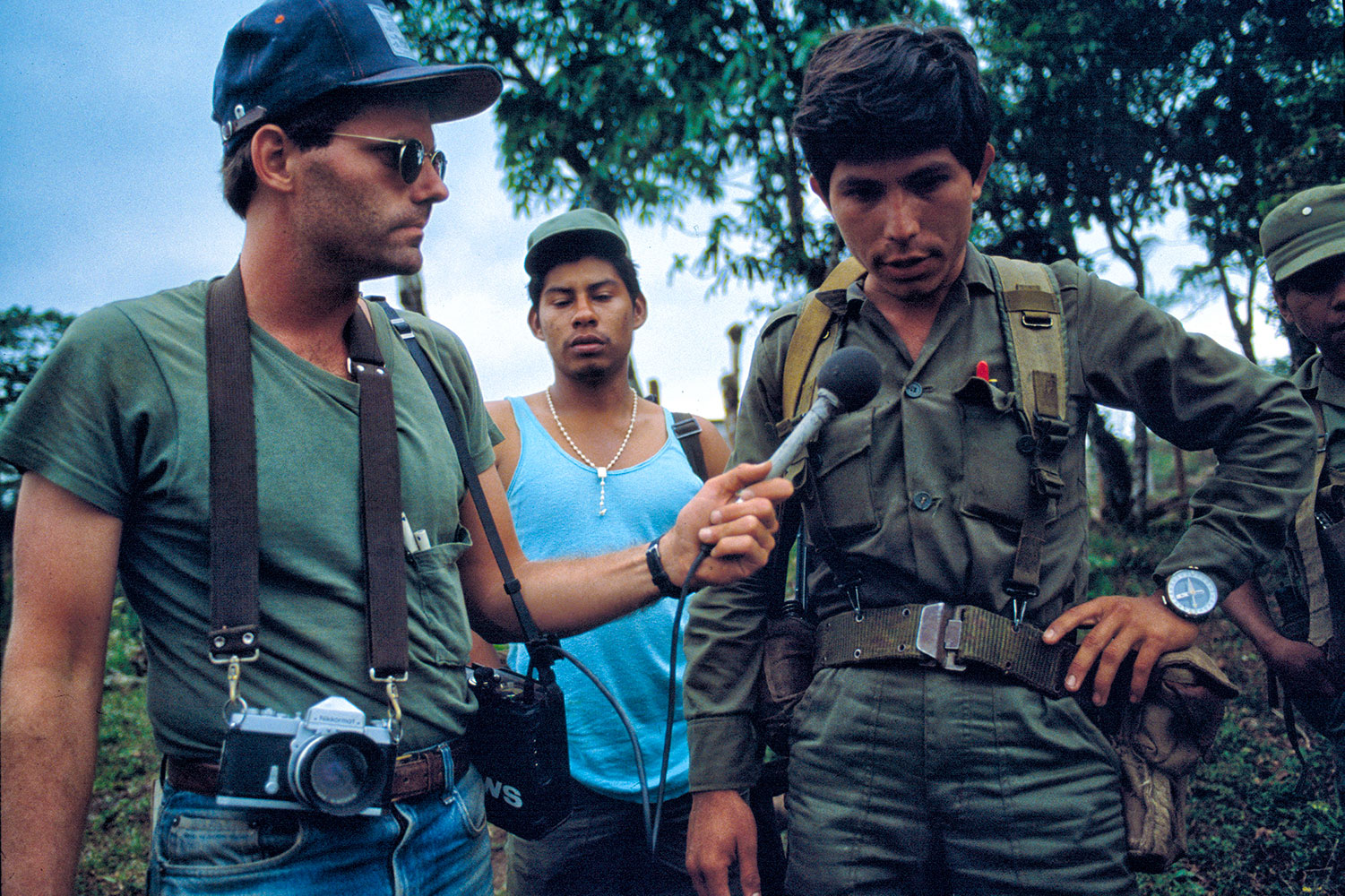
Diego Cupolo '06 is a freelance foreign correspondent in Turkey.
Journalists working in the United States may feel used to navigating the motives and special interests that influence their sources. Once a model of freedom of expression, the United States this year ranked 45th out of 180 countries on the World Press Freedom index. The reasons why America doesn't rank near the top include media company monopolies, public distrust of the press and fake news.
Conditions, however, are worse in numerous other countries, where governments instability, wars, protests and other unrest make finding the truth a risky task. We talked with two UConn Journalism alumni who have extensive experience working abroad as foreign correspondents. They have learned to navigate difficult situations when political unrest, war or press restrictions severely challenge movement and interviewing sources.
Diego Cupolo '06 has been working for seven years in Turkey, which ranks a dismal 165th out of 180 countries on the World Press Freedom Index.
Alexander Villegas '12 is based in Chile as a senior correspondent for Reuters News Service. He recently reported on the killing of political protesters in Peru. Peru ranks 110th out of 180 on the Press Freedom index.
Getting around roadblocks both real and bureaucratic
Using their experience and wits as foreign reporters, and relying on the foundation of their UConn Journalism training, Cupolo and Villegas say they are constantly challenged to find creative ways to gain information.
Cupolo has been freelancing as a multimedia journalist for seven years in Turkey, where he lives with his wife, Ceylan Akca, and their child.
The Turkish government denied him an official press card several years ago, he said, because he had covered a conflict in the Kurdish region in the southeast of the country. “The government did not like my reports,” Cupolo said, adding that his situation is not unusual for foreign journalists in Turkey. “A lot of people get deported.” He has been able to stay because of the residency he gained through his family.
Cupolo’s wife, Akca, became a candidate for parliament this year, running as a pro-Kurdish Green Left Party candidate. As a result, Cupolo has recused himself from covering Kurdish politics. But there’s plenty more to cover. He publishes a newsletter on Substack called Turkey Recap, which updates readers familiar with Turkey on the week’s news and political developments. The newsletter highlights his deep knowledge of Turkey and helps him secure assignments from foreign outlets. Lately he’s been reporting for the CBC on political speeches and Russian soldiers in Turkey.
Just as gaining press credentials can be difficult, so too is the process of finding accurate government data. He said he does not generally trust data released by the government. He will cite “official statistics” and quote independent research groups. “The problem is when you’re in a highly polarized political environment without free speech,” he said, “these groups that give you the alternative data often have political motives.”
Most citizens in Turkey are not eager to talk to reporters, he said. “There’s nothing they can gain from talking to journalists. You have to be lucky or approach them in the right way or in the right place. Usually if you’re at a pollical rally, people are more open to talking because they’re already in public, showing their preferences. But if you’re going to stop someone random on the street, it’s pretty difficult.”
Police officers in Istanbul have stopped Cupolo, ordered him to stop filming or photographing and even made him delete his material on the spot. “It’s like: ‘Be detained or erase your photos while I watch.’ ”
Despite all that, much of his work gets through; there’s no hard-and-fast prohibition on reporting there. Rather, it’s unpredictable and arbitrary. “Most of my day is just based on circumventing limitations,” he said, “and I don’t even think of them as limitations after seven years. It’s just the environment. You don’t step on a tack.”
Villegas has been senior correspondent for Reuters in Chile for two years. He is based in Santiago in a bureau that covers several countries. Before that, he reported from Costa Rica, where he grew up, for The New York Times, The Washington Post, the Guardian, the BBC, and others, including the Tico Times, a Costa Rican paper where he was assistant managing editor for two years.
In his work reporting on indigenous land conflicts, political unrest, drug trafficking, climate change, and other stories, Villegas has found that consistently asking for more information and stating whom he works for has worked to build trust.
For example, in December 2022, Villegas was sent to Peru to cover public killings of protesters after the ouster of former President Pedro Castillo. The reporter said he feared he had arrived too late to get the full story. But then he started talking to people who lived near some of the shootings. He persuaded a woman who owned a security camera to share crucial footage of one innocent man’s shooting. And Villegas visited government officials and asked questions—repeatedly. He said that Peruvians often don’t trust the local press and that there’s a saying there that it takes the foreign press to get the real story.
Villegas, who five years ago worked in protest-torn Nicaragua and has written about drug trafficking, said he over-prepares for his physical safety. “The main thing is preparation,” he said. He owns two bullet-proof vests, one light and one very heavy, and he sometimes takes a gas mask.
And he wears locally made steel shoes he learned about from a photographer.
“They look like sneakers” but protect from electric shock, nails and glass, and hazardous chemicals like gasoline.
Teaching students why world press freedom matters

The United Nations marked the 30th anniversary of its World Press Freedom Day on May 4. Although digital platforms have helped advance reliable news reports, reporters around the world continue to struggle with their physical safely and freedom to ask questions and communicate in public.
UConn Journalism Associate Professor Scott Wallace said he believes covering conflicts is more dangerous today than it was 30 years ago. Wallace has worked as a foreign correspondent in South and Central America, the Arctic, South and Southeast Asia, China, the Middle East, and the former Soviet Union. He is known for sharing his extensive international experience with students in his environmental journalism and visual journalism classes.
Reporting in pressure-filled regions requires respect for the culture, physical safety precautions, and sometimes the willingness to talk one’s way out of a situation, said Wallace, who is writing a book about his time covering Central America, Baghdad, and Iraq, in the 1980s through the 2000s.
Once in El Salvador, Wallace said, soldiers with no uniforms stopped him as he was driving through an area looking for rebel forces. He had a hunch these soldiers were not rebels but actually government army people trying to disguise themselves. So when they asked, “Are you looking for terrorists?” he said, “No, not at all.” He was, of course looking for rebel forces, but he spoke knowledgably to the soldier who stopped him, saying he’d heard the army had taken control of the area and had come to see for himself. “They looked at me like, ‘Who is this guy?’ And they let me go past their roadblock.”
Wallace, who has taught in UConn’s Human Rights Institute in its partnership with the Scholars at Risk program, is working on a new special topics course that will examine world press freedom. The course will be cross-listed with Journalism and Human Rights. Wallace said he and HRI Director Kathy Libal aim for the course to launch in Spring 2024.